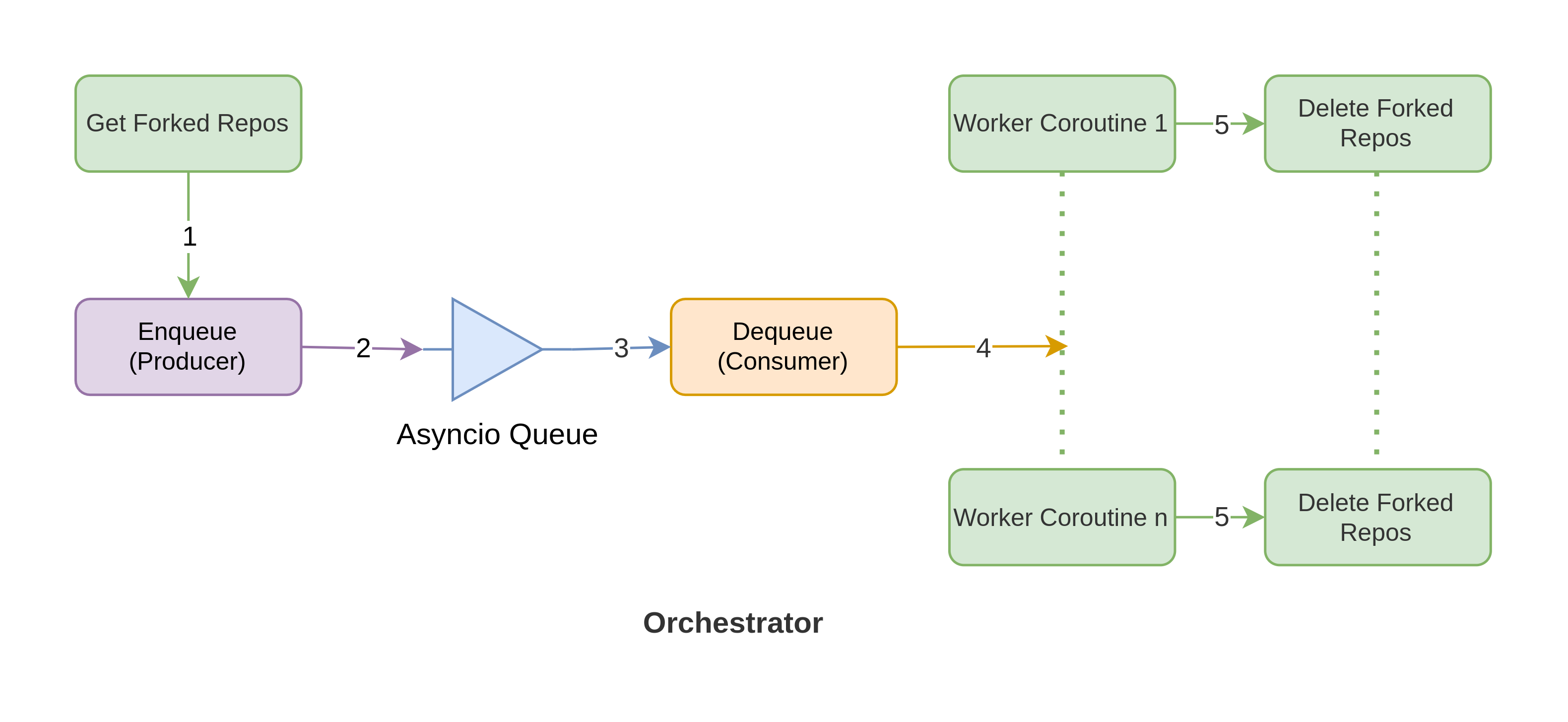https://github.com/rednafi/fork-purger
Delete all of your forked repositories on Github
https://github.com/rednafi/fork-purger
asyncio cli fork github python3
Last synced: 4 months ago
JSON representation
Delete all of your forked repositories on Github
- Host: GitHub
- URL: https://github.com/rednafi/fork-purger
- Owner: rednafi
- License: mit
- Created: 2021-10-17T21:38:39.000Z (over 4 years ago)
- Default Branch: main
- Last Pushed: 2023-10-02T18:44:14.000Z (over 2 years ago)
- Last Synced: 2024-09-21T09:10:50.343Z (over 1 year ago)
- Topics: asyncio, cli, fork, github, python3
- Language: Python
- Homepage:
- Size: 55.7 KB
- Stars: 30
- Watchers: 3
- Forks: 3
- Open Issues: 2
-
Metadata Files:
- Readme: README.md
- License: LICENSE
Awesome Lists containing this project
README
Fork Purger
>> Delete all of your forked repositories on Github <<


## Installation
* Install using pip:
```
pip install fork-purger
```
## Exploration
* Create and collect your Github [user access token](https://docs.github.com/en/authentication/keeping-your-account-and-data-secure/creating-a-personal-access-token).
* Inspect the `--help` menu. Run:
```
fork-purger --help
```
This will print the following:
```
+-+-+-+-+ +-+-+-+-+-+-+
|F|o|r|k| |P|u|r|g|e|r|
+-+-+-+-+ +-+-+-+-+-+-+
Usage: fork-purger [OPTIONS]
Options:
--username TEXT Your Github username. [required]
--token TEXT Your Github access token with delete permission.
[required]
--debug / --no-debug See full traceback in case of HTTP error.
--delete Delete the forked repos.
--help Show this message and exit.
```
* By default, `fork-purger` runs in dry mode and doesn't do anything other than just listing the repositories that are about to be deleted. Run:
```
fork-purger --username --token
```
You'll see the following output:
```
+-+-+-+-+ +-+-+-+-+-+-+
|F|o|r|k| |P|u|r|g|e|r|
+-+-+-+-+ +-+-+-+-+-+-+
These forks will be deleted:
=============================
https://api.github.com/repos//ddosify
https://api.github.com/repos//delete-github-forks
https://api.github.com/repos//dependabot-core
https://api.github.com/repos//fork-purger
```
* To delete the listed repositories, run the CLI with the `--delete` flag:
```
fork-purger --username --token --delete
```
The output should look similar to this:
```
+-+-+-+-+ +-+-+-+-+-+-+
|F|o|r|k| |P|u|r|g|e|r|
+-+-+-+-+ +-+-+-+-+-+-+
Deleting forked repos:
=======================
Deleting... https://api.github.com/repos//ddosify
Deleting... https://api.github.com/repos//delete-github-forks
Deleting... https://api.github.com/repos//dependabot-core
Deleting... https://api.github.com/repos//fork-purger
```
* In case of exceptions, if you need more information, you can run the CLI with the `--debug` flag. This will print out the Python stack trace on the stdout.
```
fork-purger --username --token --delete --debug
```
## Architecture
Internally, `fork-purger` leverages Python's coroutine objects to collect the URLs of the forked repositories from GitHub and delete them asynchronously. Asyncio coordinates this workflow in a producer-consumer orientation which is choreographed in the `orchestrator` function. The following diagram can be helpful to understand how the entire workflow operates:

Here, the square boxes are async functions and each one of them is dedicated to carrying out a single task.
In the first step, an async function calls a GitHub GET API to collect the URLs of the forked repositories. The `enqueue` function then aggregates those URLs and puts them in a `queue`. The `dequeue` function pops the URLs from the `queue` and sends them to multiple worker functions to achieve concurrency. Finally, the worker functions leverage a DELETE API to purge the forked repositories.
✨ 🍰 ✨